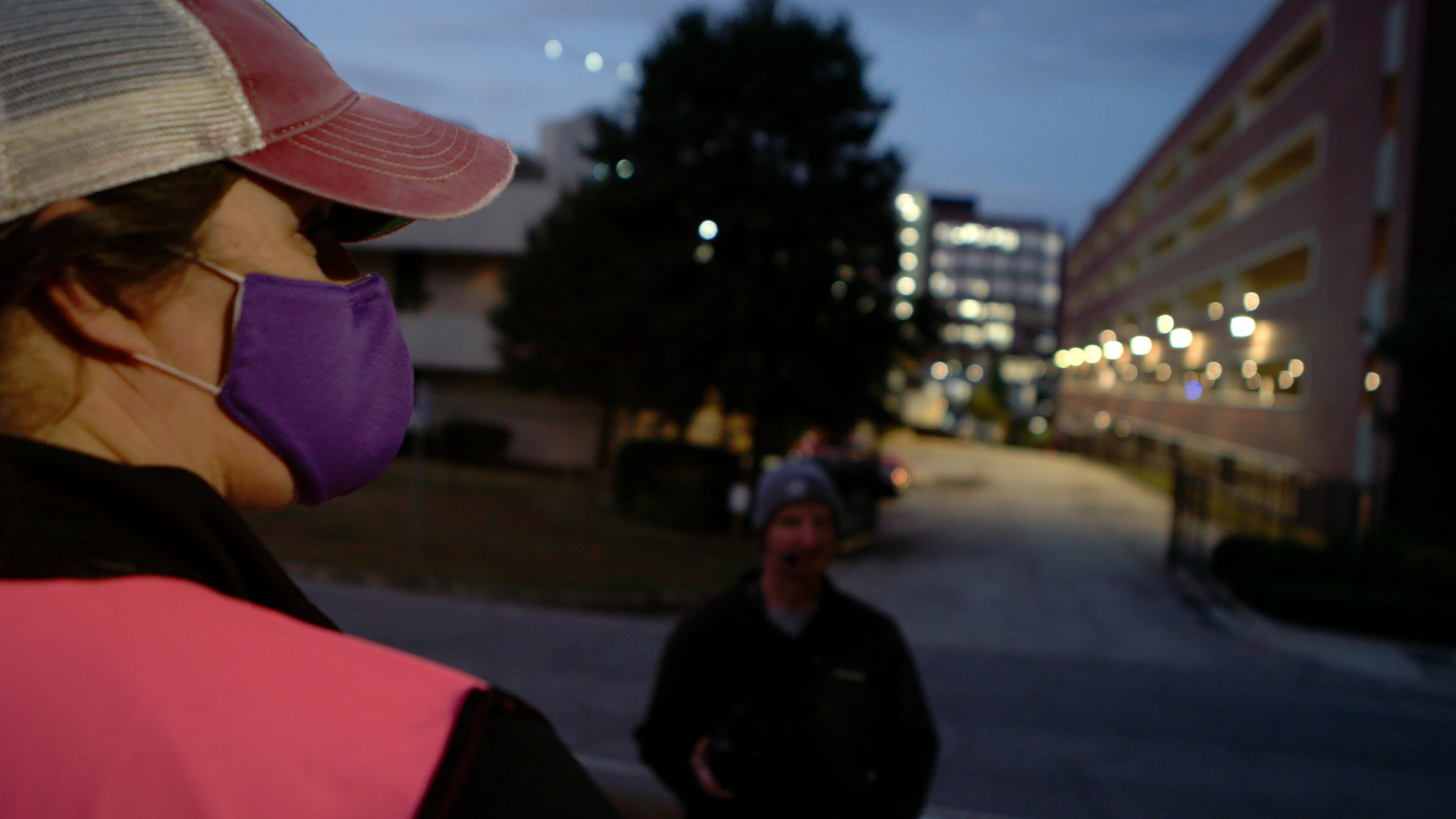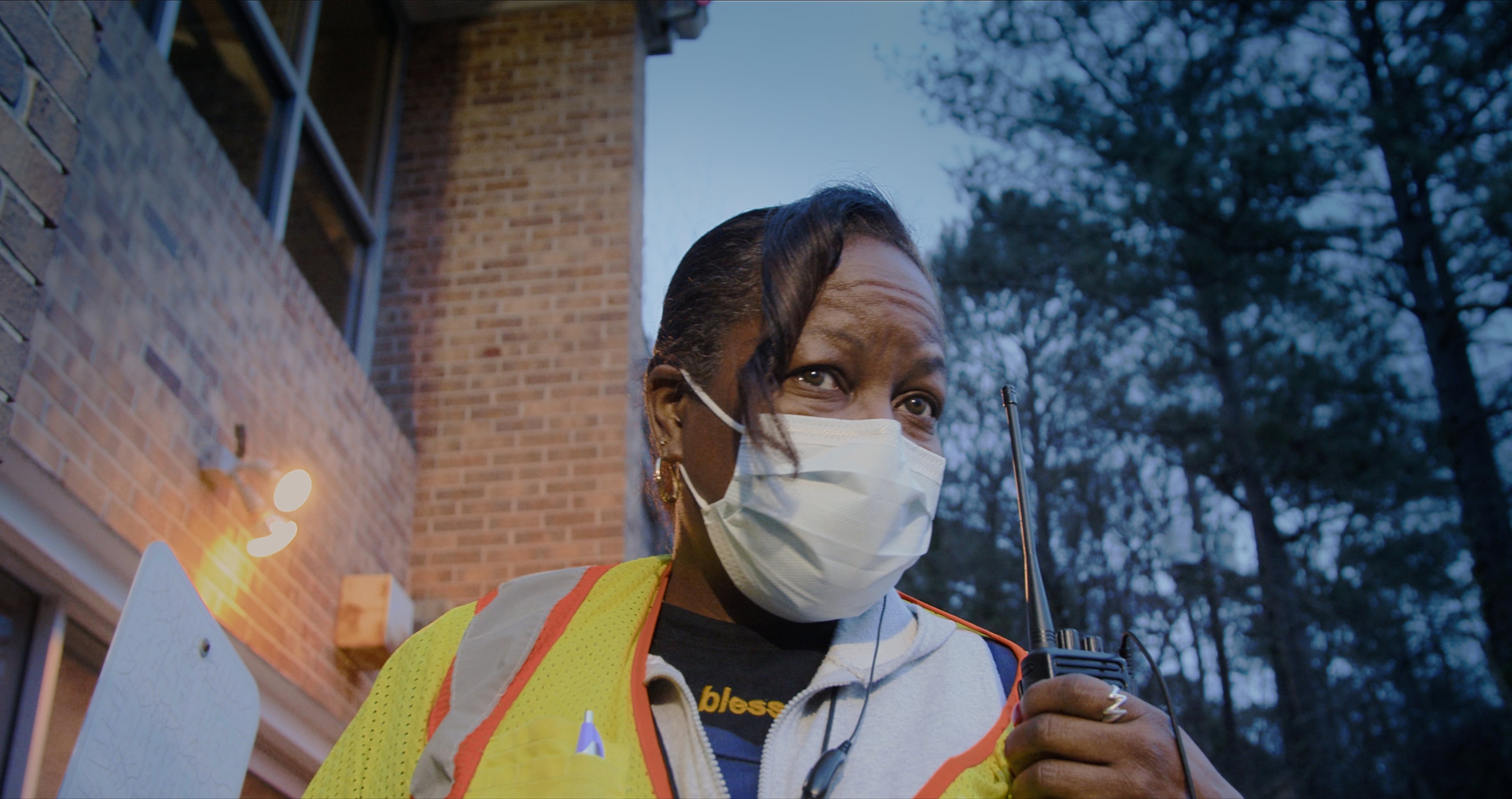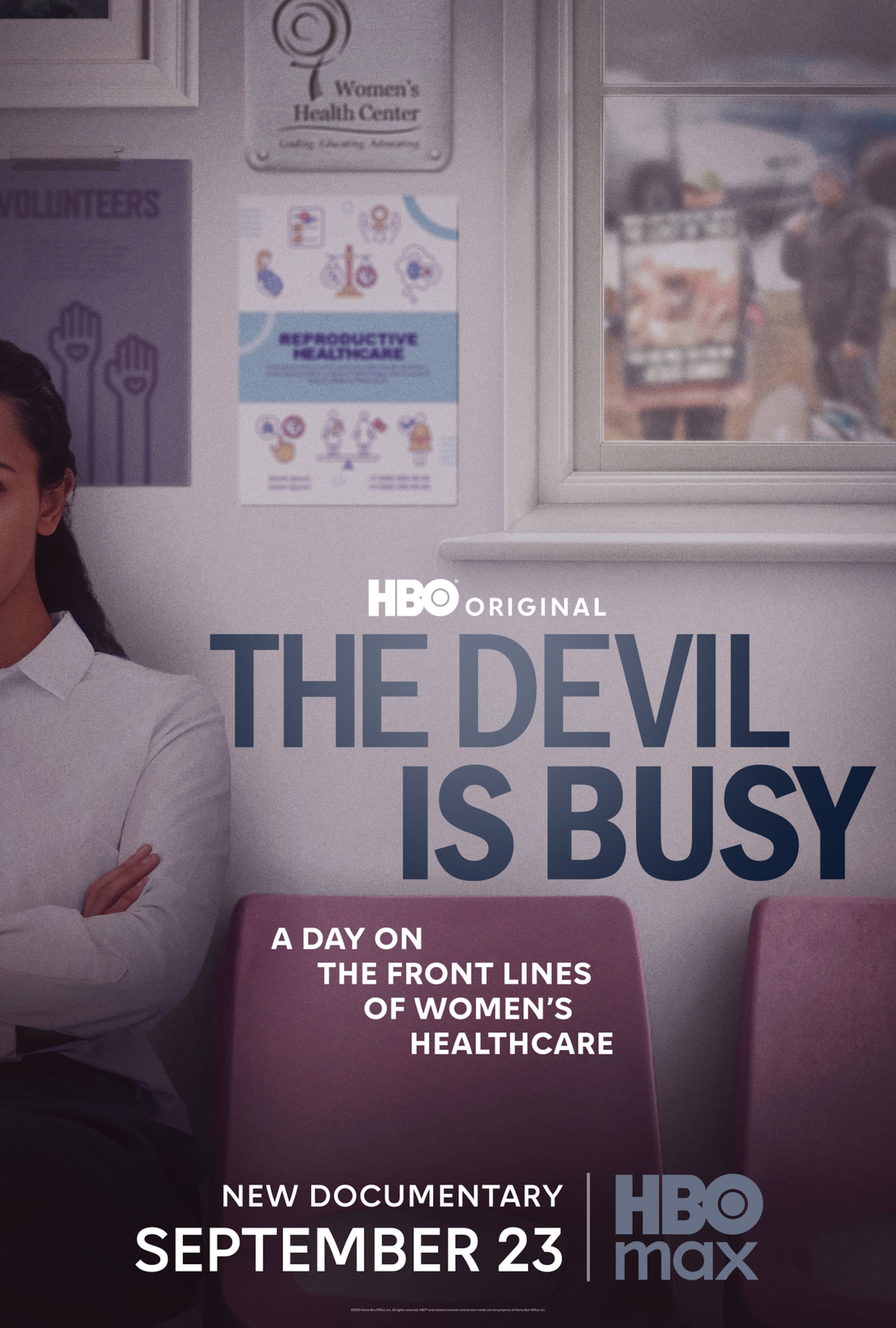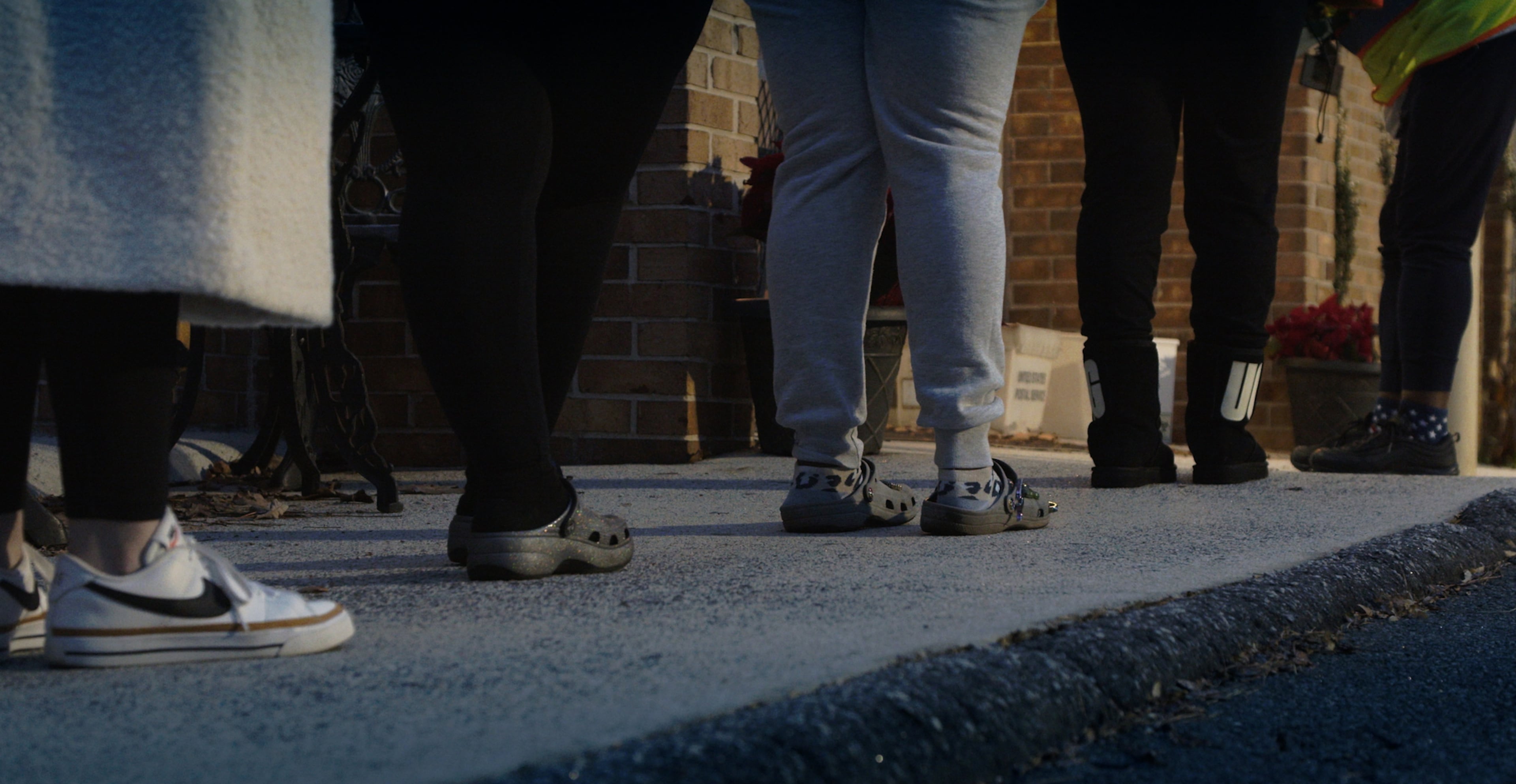New documentary invokes an emotional rollercoaster at an Atlanta abortion facility

A new documentary shows the complicated reality of patients and workers at a health care clinic that provides abortions in Atlanta.
Directed by Geeta Gandbhir and Christalyn Hampton, “The Devil Is Busy” illustrates the day-to-day operations of women seeking reproductive care after the 2022 overturn of Roe v. Wade.
The ruling once protected women’s body autonomy and right to terminate a pregnancy. But now, patients must grapple with internal struggles of deciding to receive abortions while also facing tougher hurdles to get them.
The process takes an emotional toll on everyone involved.
“This is a very stressful, high-stress situation,” said the Feminist Center for Reproductive Liberation head of security, identified only as “Tracii” in the documentary. “Any day you’re not subject to go home from here because you never know once people get in the building what they may do.”

Tracii begins and ends each day at the clinic with a prayer. She’s the first person at the clinic each morning by 6 a.m. and makes sure to check dark corners around the facility in case there are any anti-abortion intruders.
However, Tracii’s support for women’s reproductive freedom runs against the protesters who gather outside the clinic. They accuse patients who enter the facility of being murderers and to repent. They hold signs praising Jesus.
“When I look out I see pain, I see sadness, I see hypocrisy, I see judgment because all the protesters have a history,” Tracii said in the documentary, pointing toward people opposing abortion.
“It sickens me. It saddens me, but this is the world we live in — unfortunately.”
In Tracii’s position, she does not judge any of the patients at her clinic. She said she handles the situation strictly as a matter of health care.
“What is so amazing to me again about Tracii is the fact that she still holds onto her faith and her humanity and believes in everyone else’s humanity in a way that makes her compassionate,” Gandbhir said in a joint interview with co-director Hampton and The Atlanta Journal-Constitution.
Gandbhir said religion can persuade people to think that anyone who believes differently from them is demonic.
“We don’t see that with Tracii,” Gandbhir said.
After making sure the property is safe to receive patients, Tracii preps the waiting room with water and snacks. It may be a long day, and she wants to make sure the women are taken care of, especially for those who may have driven from out of state to seek care.
“(Tracii) is here, really, to protect these women,” Hampton added.
Once other guards arrive to monitor the facility, Tracii instructs them to prevent patients from bringing anything inside. There could be threats of violence. They could be anti-abortion protesters attempting to infiltrate the property.
Gandbhir and Hampton began working on “The Devil Is Busy” in 2022 after the fall of Roe v. Wade.

The 2022 federal ruling reversed a 1973 decision that a person may choose to terminate their pregnancy until the fetus is able to survive outside the womb, which is around 24 to 28 weeks.
The U.S. Supreme Court’s 2022 decision transferred power from the federal government to the states.
Georgia implemented a near-total ban, a six-week gestational mandate. Once a heartbeat is detected, the procedure is illegal.
“Are we ever, with women’s health, going to get past the A-word?” a sonogram technician said in the documentary, referring to abortion. “There’s so many other needs that need to be prioritized in women’s health care. But society and politics are stuck on this one.”
As shown in the documentary, some women do not know they’re six weeks pregnant until it’s too late and have to find another solution.
According to the documentary’s filmmakers, patients may travel from states with total abortion bans and hope to receive care in Georgia.
Gandbhir and Hampton moved forward with “The Devil Is Busy” to examine the future of women’s health care in the U.S. and the multiple hurdles they may encounter.
“I think it’s important to tell women’s stories from women filmmakers,” Hampton told The Atlanta Journal-Constitution.
Atlanta is in a unique position as an autonomous city in a red state, both Gandbhir and Hampton explained.
“Within Atlanta, you don’t have a lot of boundaries,” said Hampton, who was raised in the city but left for some time before returning.
She hopes education will be the key to help people be more compassionate and understanding about reproductive rights.
Gandbhir echoed that sentiment and said the politicization of health care is an indication of women’s societal status.
“We have to constantly be vigilant and push back against powers or forces that might want to take away our human and civil rights,” she said. “And that’s across the board.”

In “The Devil Is Busy,” only white men are seen protesting outside the facility. They challenge the Black Lives Matter movement when Black mothers abort fetuses.
“This is a place that serves the devil, from the power of darkness,” a male protester is heard speaking through a megaphone outside the clinic. “Turn away from your sins.”
A protester sings “Jesus Loves the Little Children” as women wait in line to enter the clinic.
They spew how God has already determined for these women to be mothers.
One male protester tells the women, “One day, you will stand before Holy God, give an account for this day, saying, ‘Why didn’t I listen to these men out here?’”
Tracii sees how the comments affect the women.
“I’ll say to them, ‘Baby, don’t let the devil get in your spirit. He’s a man. He’s human just like you are,’” she said. “‘At the end of the day, God gets the final say.’”
“The Devil Is Busy” is available to stream on HBO Max.
